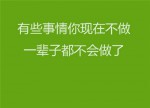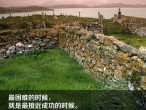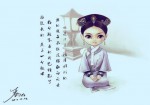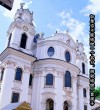
英语图书馆规则作文初一【一】
你不必在意剪个寸头,走在人群里,被人议论你是男还是女;不必在意捧着言情小说,去做一回林妹妹;也不必在意学尼采自诩为太阳,会引来多少人的非议……
青春没有规则。
真的。你可以埋头苦读,书山寒窗十几年,最后"一举成名天下闻";你也可以边读书边工作,或者先工作再读书,只要自己活着充实。……青春就好像鸟儿,任由你选择飞翔的时间,任由你选择飞翔的高度。
你梦想嫦娥,那你去追月吧!你梦想夸父,那你去逐日吧!你梦想成为但丁,那么你去找贝雅特里齐吧!
这位被世人所公认的但丁的引路人一定会帮你拥有但丁一样的智慧。我们年轻人朝气蓬勃,理想远大,拿起你的调色笔吧,让我们趁着青春大展身手吧!不要去模仿别人,不要去人云亦云,青春是我们自己的,青春是没有规则的。
大雨天,去淋一场雨吧,不要带伞,尽情去享受大自然的恩惠吧;春日里,结伴去踏青吧,让你疲倦的身心来一个最舒适的放松;烈日下,我们挥汗如雨,勤奋耕作吧。秋风中,让我们站在田野里,向那金黄的稻穗挥手,祝贺它们,也祝贺自己的丰收。冬雪里,抖一抖树杆上的积雪,扫一扫地上的厚雪,对着西风吼一句:"冬天已来临,春天怎会遥远?"……一年四季,我们每个人都有自己的'乐章,用自己的歌声去唱,这就是我们没有规则的青春,这就是我们丰富多彩的生活。青春没有规则。你可以在课堂上和老师争得面红耳赤,只为有一个清楚的答案;也可以孤灯挑尽,演算一道物理题;也可以今天和同学大吵一架,明天又和好如初。有这样的青春,你可以作笑傲考场的高手,也可以成为三百六十行以外的状元。为什么?很简单,因为我们的青春没有规则。不辜负青春,不浪费时间,什么样的青春我们不能拥有?
人生如这张考卷,答案丰富多彩,青春如树叶,每一片叶子都不一样。
朋友们,只要我们青春无悔,你我青春各异又有什么关系?请相信,请记住,青春没有规则!
英语图书馆规则作文初一【二】
考辅P42
1.IgaveTomthebook.//
2.Heboughthismothersomeflowers.//
3.Thebridgewasbuiltbyworkerslastyear.//
4.Wehavetofinishtheworktoday.//5.Hewilldohishomeworktomorrow.//
6.Wecleantheroomseveryday.//7.Thewriterspent3yearsonthebook.//
8.Itisabookwithalotofbeautifulpictures.//
9.Thebooksoldverywellduringthefirstweek.//firstweek.
10.Marywastheonlyoneintheoffice.//
11.Shefinishedherworkat10o’clock.//Shedidn’12.Shehadtotakeataxihomebecauseitwastoolate.
13.LizaandMikearrivedattheGreatWallintwohours.
14.Theywerehappytogettothetop.//
15.TheyenjoyedthemselvesontheGreatWall.//
16.ThepostmansentSusanandTommyapaperbox.
17.Theyopeneditandfoundapresentfromtheirfriend.
18.Theybothlikedthepresentandfeltveryhappy.
19.Alicedidn’tfeelwelltoday,soshewenttothehospital.
20.Thedoctoraskedhersomequestions.//
21.Thedoctordidn’tgiveheranymedicineintheend.
(全真1)
1.ThecapitalAirporthasbeeninusefor20years.//
2.ThecapitalAirportisthelargestoneinChina.//
3.Ihavenevertakenaplane.MyfriendLiPing,either.//
(全真2)
1.Fathergave$20formetobuysomebooks.//
2.IwasexcitedwhenIsawsomanygoodbooksinthebookstore.
3.ButsomebookswouldcostmorethanIhave.//
ButIdidn’//(全真3)
1.ManyChinesefriendswenttotheparty.2.Tonywasgivenalotofpresentsbyhisfriends.//Tony’
3.SeeinghisChineseteacheratthepartymadeTonyveryhappy.//(全真4)
1.Iwanttoeatsomething.//2.Therefrigeratorisempty.//3.Bobspentfifteenyuanonthehamburger.///(全真5)
1.Mr.Wangdoesn’tworkinthatfactoryanylonger.//
2.Mr.Wanglefthomeearlierinordertocatchthebus.3.Mr.Wangfindsitnoteasytogetalongwiththatyoungguy.//(专家1)
1.Manypeoplewentshoppingyesterday.
2.Janespent4hourstobuyNewyeargifts.//
3.Shewassotiredthatshecouldn’twalkanylonger.//
(专家2)
1.Myfriendssaidtome,“Areyoufree?”
2.Shewantedmetogoshoppingwithher.
3.Shethinksitapleasuretogoshoppingwithafriend.
英语图书馆规则作文初一【三】
I read the book of Robinson Crusoe, their captors.
Article describes multiple sailing in the whole island, Crusoe masters of extraordinary survival 28 years experience, strive for survival, show the ingenuity and a man with indomitable perseverance in the face of hardship persistent existence desire, the lonely and eager to rescue the mood. In a lonely island overcome Robinson was done with fear, a savage and said he was "on Friday, they get along with each other, then built on Friday, Crusoe one kind of warm friendship." I also enjoy the disclosure of the business concept: Crusoe each sailing and adventure has clear commercial purpose, with his own property and calculating profit, he will also oneself life the island is his territory, in addition to reveal its economic thought, I admire John Robinson's rich, more learning his strong initiative and spirit of adventure, early efforts, hard work, and perfect kindness thought!
英语图书馆规则作文初一【四】
i read the book written by luxun .it is called zhaohuaxishi. it includes 10 short articles about the writers stories .they are based on his own experience , when i read this book ,i feel very happy to see luxuns childhood. it was diffrent from ours,so we may find it intersting and exciting. luxuns langange is very great but maybe difficult to understand . but through his words ,we can find his happiness in his heart .
英语图书馆规则作文初一【五】
Jane Eyre is a first-person narrative of the title character, a small, plain-faced, intelligent and honest English orphan. The novel goes through five distinct stages: Jane's childhood at Gateshead, where she is abused by her aunt and cousins; her education at Lowood School, where she acquires friends and role models but also suffers privations; her time as the governess of Thornfield Manor, where she falls in love with her Byronic employer, Edward Rochester; her time with the Rivers family at Marsh's End (or Moor House and Morton, where her cold clergyman-cousin St John Rivers proposes to her; and her reunion with and marriage to her beloved Rochester at his house of Ferndean. Partly autobiographical, the novel abounds with social criticism and sinister gothic elements.
英语图书馆规则作文初一【六】
(一)改写一般疑问句:
(1)原句中有be动词的,将be动词提前,其他顺序不变。
例如:Thisisacat.变为Isthisacat?
(2)原句中有情态动词的(can/may/shall/would)将情态动词提前,其他顺序不变。例如:Hewouldlikeapie.变为Wouldhelikeapie?
(3)原句中是一般动词的,在句首加助动词do或dose(用于主语是第三人称动词单数的句子),其他顺序不变。例如:Iplaytheguitar.变为Doyouplaytheguitar.
(4)原句中的some变any。
注:以情态动词开头的一般疑问句,并且要求对方做肯定回答的`some不变。
(5)原句中的第一人称改为第二人称。例如:Iamanurse.变为Areyouanurse?
(6)以dose开头的一般疑问句,原来动词的第三人称单数形式要变回原形。例如:Hereadsastorybook.变为Dosehereadastorybook?
(二)改写否定句:
(1)原句中有be动词的,直接在be动词后面加not。例如:Itisadog.→It’snotadog./Itisn’tadog.
(2)原句中有情态动词的,直接在情态动词后加not。
例如:Iwouldlikeahotdog.→Iwouldnotlikeahotdog.
(3)原句中是一般动词的,在一般动词前加don’t或doesn’t(用于主语是第三人称单数的句子),doesn’t后面用原型。例如:Iseethreehamburgers.→Idon’tseethreehamburgers.
原句中的some变any例如:Ihavesomebreadan
dmilk.→Idon’thaveanybreadandmilk.
(4)以let开头的祈使句,如果是letus或letme,直接在其后加not;如果let后面其他人称代词宾格(you、him、her、them、it)就在let后面加助动词don’t。例如:Letusgotothepark.→Letusnotgotothepark.再如:Letthemdohomework.→Don’tletthemdohomework.
(三)对划线部分提问:
对划线部分提问,就是先把一个陈述句的划线部分去掉,然后变为一个特殊疑问句:一是特殊疑问句+一般疑问句;
二是特殊疑问句+陈述句(对主语或主语的定语提问,therebe结构除外)
⑴划线部分是人,用who提问。
⑴划线部分是主语,用who提问,who后面的动词要用第三人称单数形式。如:Whois;Wholikes;Whohas?
方法:who+原句的剩余部分
例如:①HelenandMikearelisteningtomusic.
→Whoislisteningtomusic?
②Ihavesomemodelplanes.
→Whohasanymodelplanes?
⑵划线部分是表语,用who提问。
方法:Who+剩余部分的一般疑问句形式
⑵划线部分是事或者物,用what提问。
方法:what+剩余部分的一般疑问句形式。
注:如果原句是therebe句型,直接用What’s+地点状语来提问。例如:①Wewouldliketobuysomethingsforaparty.
→Whatwouldyouliketobuyforaparty?
②Therearealotofcakesintheplate.
→Whatisintheplate?
⑶划线部分是物主代词或名词所有格,用Whose提问。
方法:⑴划线部分是主语的定语时,Whose+剩余部分
例如:Ourclassroomisbright.
→Whoseclassroomisbright?
⑵划线部分是表语或表语的定语时,Whose+剩余部分的一般疑问句形式例如:①ThewomanisSuYang’steacher.
→Whoseteacheristhewoman?
注:对某部分的定语提问,被修饰的部分跟随特殊疑问句往前提②ThispurseisYangLing’s.
→Whosepurseisthis?
⑷划线部分是地点,用where提问。
方法:where+剩余部分的一般疑问句形式
例如:TheyarehamingaMathslessonintheclassroom..
→WherearetheyhavingaMathslesson?
⑸划线部分是“多少”,用howmany或howmuch提问。
方法:⑴句中是可数名词的用Howmany+剩余部分的一般疑问句形式例如:Therearefifteentreesintheplayground.
→Howmanytreesarethereintheplayground?
⑵句中是不可数名词的用Howmuch+剩余部分的一般疑问句形式例如:Ihaveaglassofjuiceforbreakfast.
→Howmuchjuicedoyouhaveforbreakfast?
⑹划线部分是时间,用when或whattime(具体的几时几分)提问。方法:⑴when+剩余部分的一般疑问句形式
例如:SuYangandSuHaiareathomeonSundaymorning.
→WhenareSuYangandSuHaiathome?
⑵问具体的时间直接用Whattimeisit?或What’sthetime?问
例如:It’sthreeforty-five.
→Whattimeisit?或What’sthetime?


















